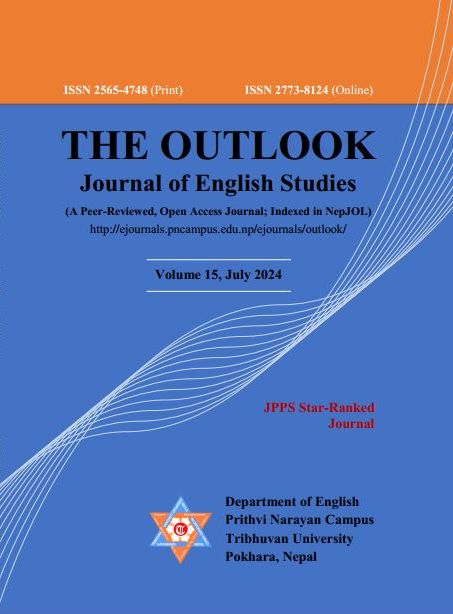Reshaping Identities: Female Agency in Jhumpa Lahiri’s The Namesake
DOI:
https://doi.org/10.3126/ojes.v15i1.67758Keywords:
Diaspora, female immigrants, female agency, cultural negotiationAbstract
In the Western diaspora, the female immigrants from South Asia face a different cultural and social milieu compared to the patriarchal contexts of their native countries. The negotiation with Western values and practices becomes pivotal in shaping their self-perception and exercise of agency. This paper examines Jhumpa Lahiri’s novel The Namesake to explore the cultural negotiation and subsequent transformation of Ashima, a South Asian female immigrant in the United States. Utilizing Amartya Sen’s capabilities approach, which emphasizes removing cultural, financial, and social barriers to human empowerment, alongside Albert Bandura’s theory of human agency, which highlights the influence of external environments on individual decision-making capabilities, this study analyzes Ashima's transformed self-perception and behaviour. When Ashima adapts to the Western cultural values, she overcomes cultural barriers that restrict her from exercising her agency. Similarly, her engagement in income-generating activities reduces her financial dependency on her husband. The process of acculturation and financial independence transform her from a submissive wife into an independent woman capable of making critical life decisions. The findings underscore the importance of removing cultural barriers and reducing financial dependency to enhance the decision-making capabilities of female immigrants.
Downloads
Downloads
Published
How to Cite
Issue
Section
License

This work is licensed under a Creative Commons Attribution-NonCommercial 4.0 International License.
This license enables reusers to distribute, remix, adapt, and build upon the material in any medium or format for noncommercial purposes only, and only so long as attribution is given to the creator.

